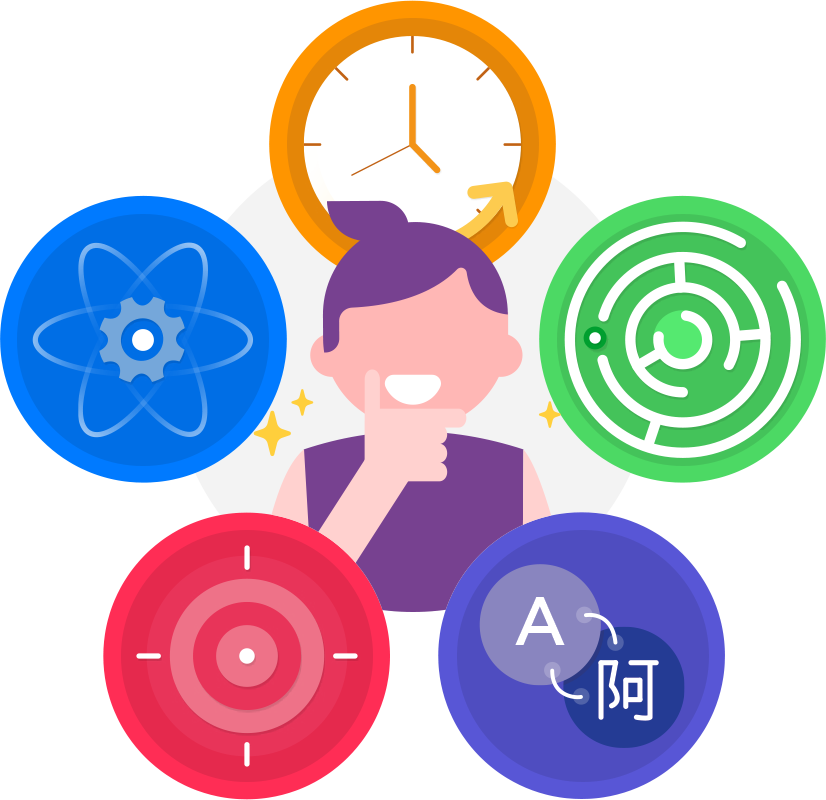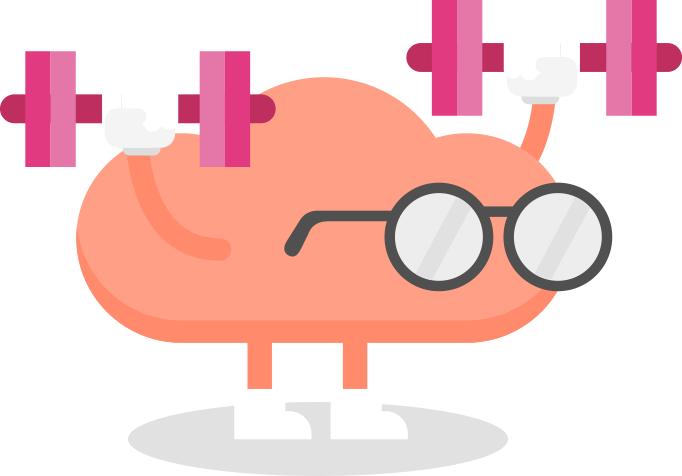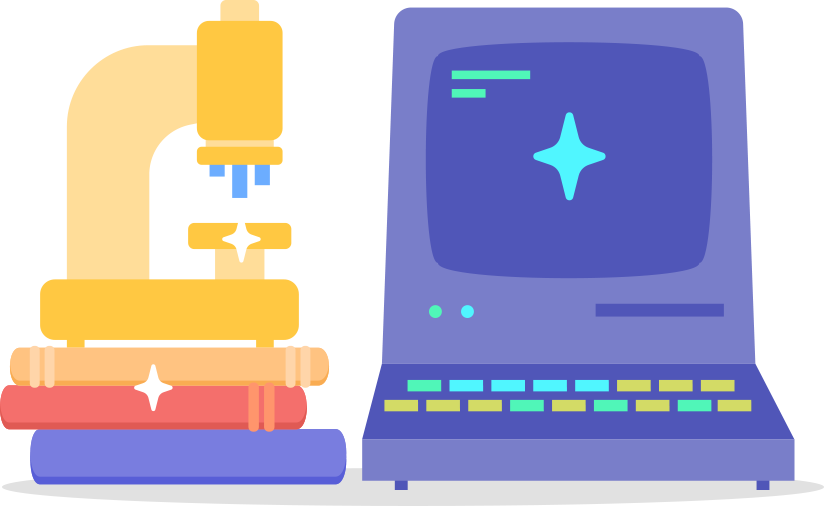Peak games are designed to challenge your cognitive abilities
Cognitive abilities are mental tools we use every day to help us navigate the world. Imagine going to the supermarket. If you want to have a successful trip you need your memory (to remember what’s missing from the fridge); you need to pay attention (supermarkets are crazy places!); and you need to be able to solve problems (is that 20% Off deal really good value for money?).
Everyday activities exercise your cognitive skills and so it makes sense to keep them sharp!





